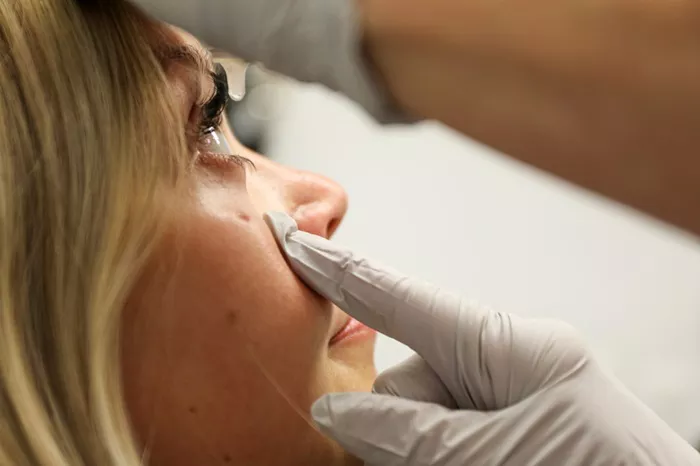Each year, over 800,000 Americans undergo refractive surgeries like LASIK and PRK to correct vision issues, yet a small subset of patients continue to experience prolonged pain and discomfort afterward. Addressing this issue, researchers from Oregon Health & Science University (OHSU) have recently published a study in the Journal of Proteome Research that sheds light on potential causes and diagnostic markers for this persistent pain.
Rich Proteomic Insights
Dr. Sue Aicher, the corresponding author and professor at OHSU, emphasized the complexity of human tears beyond mere saline solution. Tears contain thousands of proteins that can influence nerve activity on the corneal surface, potentially affecting pain perception.
Study Design and Findings
The study enrolled 120 participants from Miami and Portland who underwent refractive surgery and reported no pre-existing eye pain. Three months post-surgery, tear samples were collected using a non-invasive method involving thin filter paper under the lower eyelid. Of these participants, 16 continued to report pain, while 104 did not. Analysis of tear samples revealed 2,748 proteins, with distinct differences noted between those with persistent pain and those without.
Insights into Pain Prediction
Lead author Dr. Brooke Harkness highlighted that specific proteins related to immune responses, inflammation, and corneal nerve damage showed consistent differences. Importantly, it was the patterns of these protein differences, rather than single proteins alone, that proved predictive of persistent pain. This pattern-based approach was statistically validated by bioinformatics experts, suggesting its potential utility in assessing individual risk for post-surgical pain.
Clinical Implications and Future Directions
Dr. Harkness underscored the importance of providing patients with personalized risk assessments before elective surgeries, allowing them to make informed decisions. The research team envisions these findings evolving into novel screening tools that could revolutionize pre-surgical evaluations.
Looking ahead, Dr. Aicher expressed optimism about translating these discoveries into targeted therapies. By modulating elevated proteins identified in patients experiencing pain, researchers aim to develop effective treatments tailored to individual needs.
Collaborative Effort and Support
The study benefited from collaboration across disciplines, involving experts from OHSU’s Casey Eye Institute and the OHSU-PSU School of Public Health. Funding from the National Eye Institute supported this research, highlighting its significance in advancing eye health care.
In conclusion, OHSU’s pioneering research offers promising avenues for both understanding and alleviating persistent eye pain following refractive surgery. By harnessing insights from tear proteomics, the study sets the stage for personalized medicine approaches in ophthalmology, potentially enhancing patient outcomes and quality of life post-surgery.
[inline_related_posts title=”You Might Be Interested In” title_align=”left” style=”list” number=”6″ align=”none” ids=”10923,10920,10918″ by=”categories” orderby=”rand” order=”DESC” hide_thumb=”no” thumb_right=”no” views=”no” date=”yes” grid_columns=”2″ post_type=”” tax=””]



































